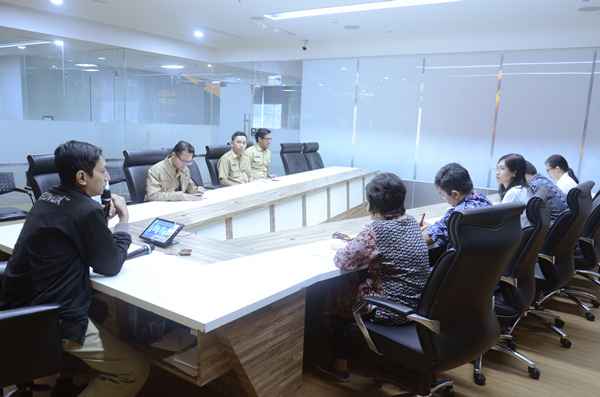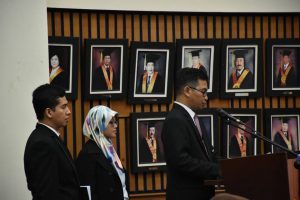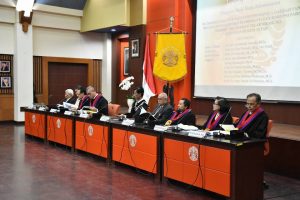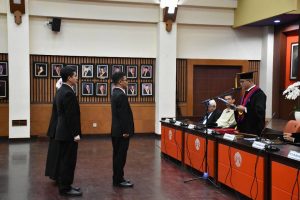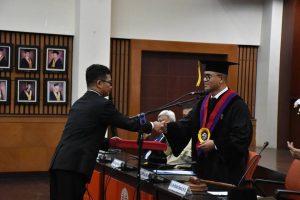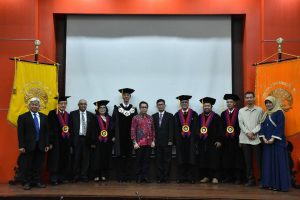But defying the clichés that surround it, the capital city of Indonesia also is beginning to earn its spurs in urban innovations. What is generating a lot of interest across the country and beyond is web-based planning mechanisms that involve residents in local government’s decision-making process. Citizens are becoming engaged in identifying the city’s most pressing problems and proposing solutions.
Some of Jakarta’s tech tools may sound familiar in other cities. For example, thousands of residents are using Qlue, a smartphone app that lets users snap a picture of uncollected garbage or a broken street lamp, and report it to local authorities. Like “311” services in the United States or Seoul’s “smart complaint” app, Qlue gives citizens an immediate way to tell authorities what needs fixing.
But other solutions are more particular to Jakarta, and seek to engage residents in deeper, long-term questions about the future of their city. One strategy mixes face-to-face meetings at the local level where residents can propose new ideas to city officials, and uses a web-based platform to track whether authorities are delivering on them. Any city resident with a valid city identification card known as a Jakarta ID can propose an idea through the system.
I recently had a chance to see some of these tools and talk to urban planners, community leaders and ordinary citizens about them as part of an international study tour. The city’s participatory planning strategy was one of 15 programmes acknowledged last year by the Guangzhou International Award for Urban Innovation. A delegation of Asian city leaders and experts visited to learn lessons from Jakarta Smart City, a government agency that partners with the private sector and NGOs on these approaches.
[See: Inside the Guangzhou Award for Urban Innovation]
What we saw was a megacity that hasn’t solved all of its myriad woes, but is well on its way to a new bottom-up formula to work at it. Citizen engagement is now seen here as crucial to improving services, improving transparency in government and holding local leaders accountable.
The public’s priorities
The word you hear all the time when you listen to city planners here is musrenbang. It’s the local word for community meetings that happen at the level of Jakarta’s 44 districts and 2,726 sub-districts. These forums have become a primary path for citizens to express concerns and demand better services for their neighbourhoods.
For communities who historically have had little say in local decision-making, merely having a forum for residents to make suggestions directly to local officials represents something of a breakthrough. However, their recommendations often get lost in the city bureaucracy afterward. Residents would have little way of knowing if the city was working on their idea or rejecting it.

Regional planning head Tuty Kusumawati says most proposals put forward by residents through the e-musrenbang process are accepted and funded. (Patralekha Chatterjee)
So city leaders added a digital component to the process, known as e-musrenbang. Proposals decided upon at the local-level meetings are submitted to city government through the web-based application. It’s the repository of aspirations residents have for their communities — in 2016, Jakarta city government received more than 46,000 proposals from the public.
The platform is also a tracking mechanism, so that the public can easily check on the progress of their suggestions. If the proposal is rejected, local officials must give a reason why. According to Tuty Kusumawati, head of Jakarta’s Regional Development Planning Board, 76 percent of the proposals from the community are accepted, validated and funded for implementation.
This bottom-up process works alongside the more traditional top-down planning and budgeting systems driven by local government agencies, says Andhika Ajie, a planner and analyst with the Province of Jakarta Special Capital Region. “The head of the sub-district should know the real needs of the people,” he says. “The proposals are verified by the sub-district and then the district authorities. The idea is to combine technocratic planning by municipalities with citizens’ ideas.”
According to Ajie, having the Qlue app as a separate platform for handling day-to-day complaints has helped improve the dialogue between residents and planners.
“Previously, citizens used to submit proposals which combined complaints needing immediate redress with long-term demands,” he says. “Now we have separated it. Qlue deals with complaints and the proposals are fed into e-muserenbang. If there is garbage lying around somewhere, all that a Jakartan has to do is to click a photo and report it. Within 24 hours, it will be removed.”
Tracking progress
In Cipete Utara, a middle-class neighbourhood in South Jakarta, residents and community leaders generally offered a positive assessment of the changes.
“The most interesting part of e-musrenbang is that now we can actually track online the status of our community proposals,” says Yostiana Bella Ulfa, 25, who has lived in Cipete Utara all her life. “If any suggestion is refused, we are also told the reasons. If it has been accepted, we can track various stages of implementation.”

Community leader Iyus Ruslan Said: Roads, sewers and infrastructure “are on top of the mind of most people.” (Patralekha Chatterjee)
She says she was “thrilled” recently when a proposal from the neighbourhood committee to fix a number of streets pocked with potholes was acted upon quickly. “In Jakarta, we use motorcycles a lot, especially in narrow lanes,” Ulfa says. “Commuting becomes a big problem if the lanes are badly in need of repair.”
Yostiana’s father, Iyus Ruslan Said, a 50-year old businessman, heads the local neighbourhood committee. He says e-musrenbang has been helpful in communicating and tracking the progress on the community’s main demands, which relate to repairs of roads, sewers and other infrastructure. “These physical bottlenecks are on top of the mind of most people,” he says.
However, older residents and many community leaders are still trying to adapt to technology, he says. Much more needs to be done to spread awareness of the e-musrenbang process. “The sudden change has been a cultural shock,” according to Said, “because there is a big difference between the process earlier and now.”
[See: How this Indonesian city’s first female mayor is reducing waste and boosting citizen engagement]
Mohammed Yohan, head of the Cipete Utara Sub-District, agrees that it has been a change. But in his view, it’s largely a change for the better.
“Earlier, it was more difficult to track status of proposals to the city government,” he recalls. “We have seen angry community members throwing chairs, frustrated at not knowing the status of some proposals made for benefit of the community. Now any citizen with a Jakarta IDcard can track proposals in real time. It is the culture of open data.”
Spreading awareness
Participatory urban planning in Jakarta is not just about technology. It’s also about finding new ways to tap resources and energy in the community.
In Cipete Utara, the sub-district office sits alongside a preschool. Recently, PT. Agung Sedayu, a real estate development company, turned the area next door into a park for children and an activity centre offering classes from dancing to drawing. There’s a small library, three toilets, a lactation room, basketball court and small amphitheatre. The project was part of the company’s corporate social responsibility efforts. It is maintained by the company and the local community.

Planner Andhika Ajie: “The idea is to combine technocratic planning … with citizens’ ideas.” (Patralekha Chatterjee)
Inside the complex is something called a “waste bank”. Residents drop off old newspapers, plastic bottles and other trash, and 120 women volunteers who work here turn the waste into toys and craft items.
“Every three months, I hold meetings with mothers who drop by and other volunteers,” says Sri Hastuti Sugiyono, the waste bank’s director. “We discuss what sort of products we should make out of the trash — and which would sell.”
Citizens are the ones who proposed these new facilities, says Yohan. Because the ideas rose up through a participatory process involving not just residents but the private sector and local NGOs, the company and the community found a way to pitch in and make it happen.
Teguh Kurniawan, an associate professor at the University of Indonesia, says the most interesting part of Jakarta’s approach is the direct participation of citizens. “The challenge now,” he says, “is in spreading awareness about the benefits of these innovative measures, spreading the message among the public at large and ensuring that community leaders adapt to technology.”
[See: How Boston gives youth control over part of the city budget]
Kurniawan adds that it’s important to recognize that access to technology and internet connectivity is not uniform across the city — especially in poorer neighbourhoods, there will be teething problems. In addition, since e-musrenbang requires a Jakarta ID to submit proposals, a large number of transient residents aren’t able to use it.
At the same time, Kurniawan notes that Jakarta’s population is mostly literate and that these innovations have great potential to positively impact the daily lives of most city residents.

A play area outside a preschool was built by a private company after community members requested it through the e-musrenbang process. (Patralekha Chatterjee)
For tech-savvy younger residents, Qlue is an especially big hit. The app, launched in 2014, came about through a partnership between the municipal government and a local software company.
With Qlue, more and more Jakartans are reporting problems that occur in their neighbourhood in real time by clicking a photo, geo-tagging the location, offering a brief status report. People without smartphones can use SMS.
Yohan points to a street lamp nearby as an example of an improvement suggested through all of Jakarta’s new feedback tools. Using Qlue, lots of residents complained of dark alleys that made them feel unsafe. Using e-musrenbang, they asked for more street lamps — the city has installed more than 600 street lamps in Cipete Utara through that process.
“It was proposed, accepted and implemented,” Yohan says. “In all, there were 119 proposals from residents of this sub-district. All but one were accepted.”
(Travel costs associated with reporting for this story were paid for by the Guangzhou International Award for Urban Innovation.)
